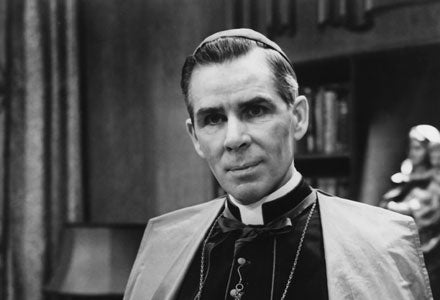The following is the second part of a series based on Fulton Sheen’s book, Freedom Under God.
Does freedom exist? Why do we argue about this anyways? Can we really know anything? Is this all a simulation? Questions like these feed the Candy Crush addiction, because questions like these push us towards easier distractions. Yet it remains important because, as a wise man once said, “if you don’t know where you’re going, you’ll end up someplace else.”[1] Unfortunately, this “someplace else” can be awful when led by false liberty; but true liberty remains always available to us.
Liberty of Indifference
Health is known by its defects and Sheen gives us the first defective form of liberty as “liberty of indifference.” This is the mark of liberalism, an ideology that places freedom above truth. It is by this idea of liberty as indifference that a political body is able to ignore the truth of things. This led to two main problems, one social, one economic. The social problem was that everybody became wrapped up in their “tiny little selves,” or what Charles Taylor has called, “the buffered self.” In this little made up world, the self exists in a vacuum; he is his own god and arbiter of truth, able to do whatever he wishes. The economic problem was a gross inequality at the hands of the most successful who are able to use their power to subdue those beneath them.
Reaction – Liberty of Necessity
Spiteful of this situation, an even uglier reaction came forward. Their needed to be something to set this right. Of course religion is disregarded as a possible solution, after all we are modern, enlightened thinkers! Thus the state took the place as the arbiter of truth and the bearer of liberty. The state claimed to set right all inequalities and anyone who opposed them was anathema, and “thus was born the dictatorships of Fascism, Nazism, and Communism in Europe.” Liberty of indifference was so individualistic it forgot the communal, but liberty of necessity forced the individual to work for the communal. The individual could only find his or her freedom in working for the state, while opposing the state first labeled you an outsider or a lunatic, then worse.
Liberty and the Death of Christ
Both of these liberties sent Christ to His cross. Truth Itself was on trial, but Pilate was indifferent. “For this purpose I have been born, and for this purpose I have come into the world – to bear witness to the Truth;” these are the words Our Lord gave to Pilate when asked about His kingship (John 18:37). Pilate’s only response was, “What is truth?” Fear of the crowds likely lead his indifference, fear of being labeled “narrow” for believing that truth exists. This fear led him not to vindicate Jesus Christ, but to offer the crowds a choice between a murderer named Barabbas and Jesus. At this point liberty of necessity stepped in, for the crowd proclaimed: “if you release this man you are no friend of Caesar’s” (John 19:20). God was not the arbiter of truth, Caesar was; though Christ is God, any opposition to the state necessarily had to be crucified.
True Liberty – and the Rosary
False liberties are false because they enslave. We think freedom to choose is real freedom. Yet we continually become addicted to what we choose. True freedom, however, is “the freedom to do what we ought.” I am only free when I am not enslaved and I am only free when I know what I ought to do. This is only possible if I know what man is created for. Man is not created for freedom’s sake (liberty of indifference) nor is he created to build a supposed utopia at the hands of the state (liberty of necessity). Liberty is not given by the state to man, it is given by man to the state. Human beings are created to know and love their Creator in this life so that they may be perfectly happy with Him in the next. This is not done alone and individually in a vacuum, nor is it done by mandate of the State. This is only possible if we are free from false liberties.
We are undoubtedly stuck in notions of false liberty. How can we free ourselves? Only in Christ do we find our own identity, yet we affirm our identity as part of a community, the whole community that is present in the Mass, which is the entire Church. Away from our churches, the rosary becomes our liturgy. Uplifting to our sorrows, gentle to our anxieties, and medicinal to our frustrations, the repetitions remind us of who we are, soothing us away from our enslavements. May we find true liberty through it.
